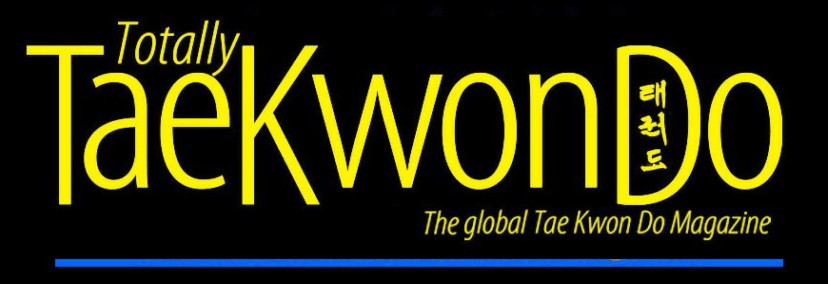
Totally Tae Kwon Do The Global Tae Kwon Do Magazine |

© |

About | Latest | Subscribe | Back Issues | Book Store | News Letter | Search | Sponsors | Sponsorship | Advertise | Charity Write | Contact | Distribution | Feedback | Links | Forum |
keywords:totallytkd, totally, taekwondomag, magazine, times, itf, wtf, tae,
kwon, do, taekwon, taekwondo, Taekwon-Do, tae kwon do, tkd, Martial, Arts, Fitness
, self. Defence, international, world, kukkiwon, federation, ukgt, ukitf,
ustf, korean, korea, academy, tkd power, rayners, uk,usa, ct, tn, me,
karate, kickboxing, kung, fu, judo, jujitsu, wtf, ukgt, ukta, uktf, impact,
tagb, gtuk, imperial, gti, anslow,ukitf, bit, puma, gtuk, ustf |
The 'Decades' of Tae Kwon Do Special Edition 280 Pages The ‘Decades’ of Tae Kwon Do Mid 1960’s & 1970’s - Respecting The Past & Martial Arts Legacy Dirty, Dangerous & Destitute - Beginning TKD in 1970’s New York City From Korea to the USA - Training Under the Legendary Jhoon Rhee in the 1970’s Australia in the 1970’s The 1970’s in Chicago, USA Taekwon-Do in the UK - 1980’s From Jhoon Rhee to Yoon Lee - Transition from Student to Instructor Heavy Contact, Minimal Pads, Interesting Times - UK Tae Kwon Do in the 1980’s 1980’s to 1990’s - USA: Part 1 1980’s to 1990’s - USA: Part 2 UK Taekwon-Do in the 1980’s A Road Less Travelled - Independent USA Tae Kwon Do in the 1990’s Taekwon-Do in the UK - 1990’s - ‘The Reign of the Orgs’ The ‘Decades’ of Tae Kwon Do: USA, 1990’s The Birth of Rayners Lane TKD & The Naughties Rayners Lane TKD & The Naughties - Pt. 2 Rayners Lane TKD & The Naughties - Pt. 3 Rayners Lane TKD & The Naughties - Pt. 4 Rayners Lane TKD & The Naughties - Pt. 5 Rayners Lane TKD & The Naughties - Pt. 6 Rayners Lane TKD & The Naughties - Pt. Submission Guidelines Sponsorship Packages Patricks TKD Funnies |
Purchases Once purchased via the Paypal button above, please allow time for an email link to be sent to you, so that you can download the magazine - thanks |
Contributors Master Gwen Hall, Master Richard Conceicao, Master Yoon Lee, Master Peter Wong, Grandmaster Earl Weiss, Master Clive Harrison, Master Roy Bertrand, Adam Thorne, Paul Wigg, Dennis Koenig, Stuart Anslow, Colin Wee and John Dowding |
The 'Decades' of Tae Kwon Do How Has Tae Kwon Do Changed with the Times? So you practice Tae Kwon Do. Perhaps you write “Tae Kwon Do” differently. Maybe as “Taekwondo.” Or maybe “Taekwon-do.” No matter. You get Totally Tae Kwon Do magazine because you are interested in learning more about it. In broadening your horizons. You might wonder how other schools or “styles” practice Tae Kwon Do differently. You may wonder how and why their rituals and etiquette may be different, too. What about their technique? Which patterns do they practice – the Ch'ang Hon tuls, the Kukkiwon poomsae, the Palgwe forms, the Pyong-Ahn series? Is there a pattern called “Tekki?” What about kata? Do some styles practice kata? Is Tae Kwon Do truly 2000 years old? Things have obviously changed since the beginning, right? How has Tae Kwon Do changed with the times? You will be happy to know that Totally Tae Kwon Do magazine answers all these questions and more. The Decades of Tae Kwon Do is a series of articles featured in the magazine from issue #82 to #108 (Dec 2015 – Feb 2018). In the series, masters and instructors who practiced Tae Kwon Do at the time – and continue to practice (or teach) today, 60 years later – discuss how Tae Kwon Do has evolved since the 1960s to the present. These reflections, which are often deeply personal, tell us what the world was like for these martial artists. What was in the news. What martial arts were popular. These students of Tae Kwon Do describe the martial arts schools near them. They reveal why they became interested in martial arts and why they chose Tae Kwon Do. They describe how they felt. How they failed. How they succeeded. How they transitioned from a student to an instructor. What the classes were like. What competitions were like. What their instructors were like. What was required to test. For each writer, the experience was different. |
- Intro by Master Mike Swope |